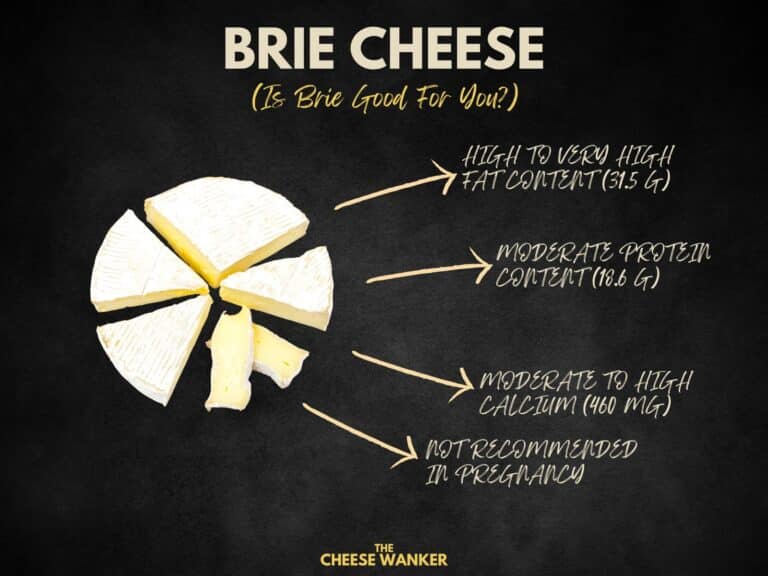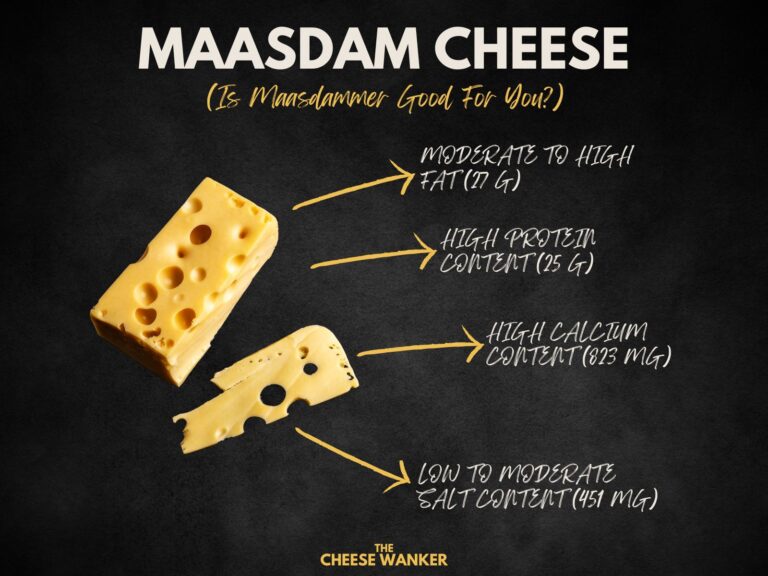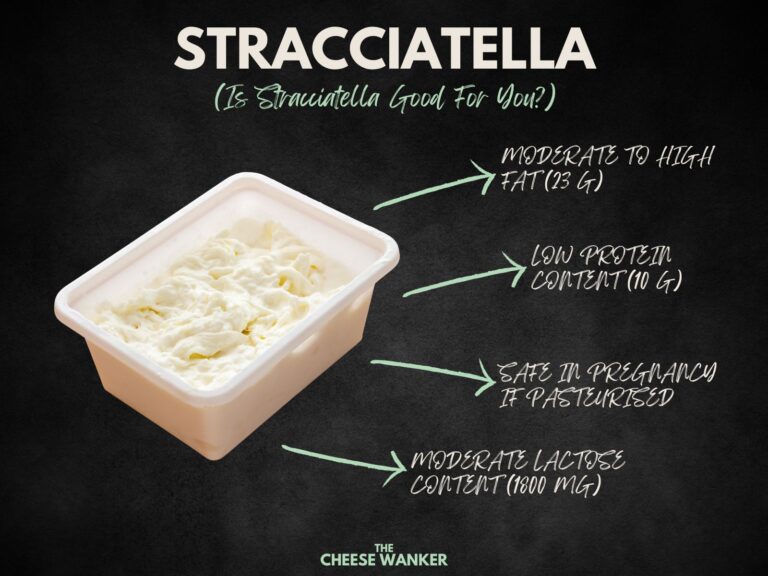Originating from the Duchy of Limburg in Belgium, Limburger has grown to become a popular cheese world-wide. Read on to learn about the nutrition facts of Limburger cheese.
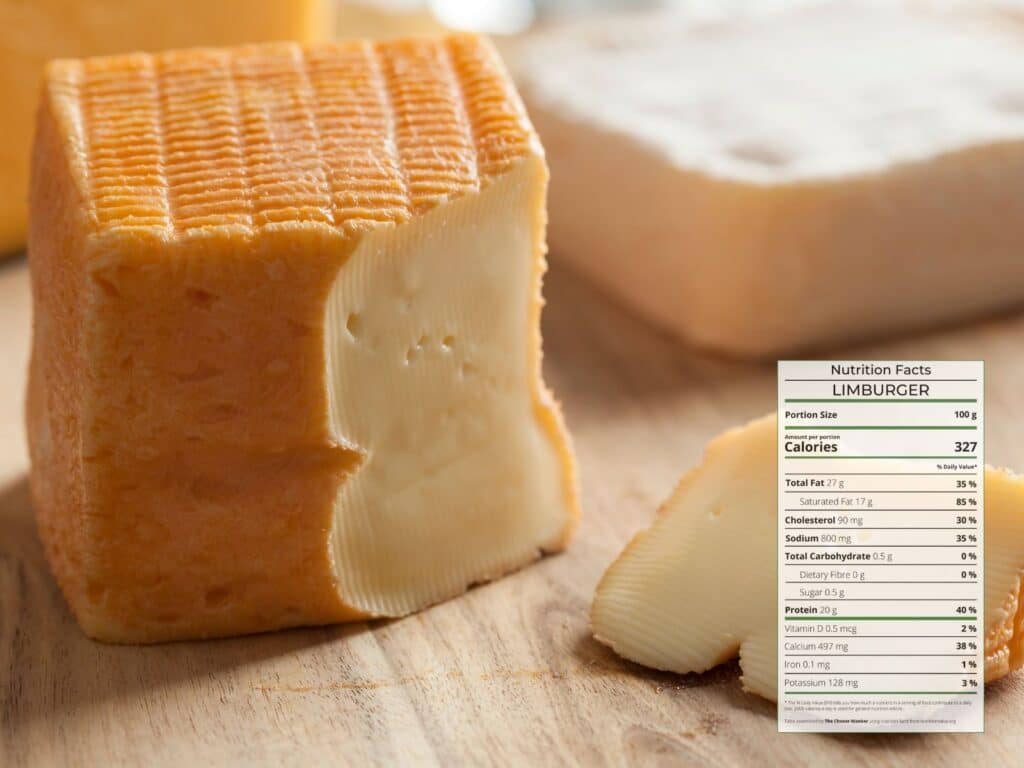
SEE ALSO: Nutrition facts for popular world cheeses in The Cheese Wanker’s index →
What is Limburger?
Limburger cheese, hailing from Belgium and Germany, is a soft washed rind cheese made from cow’s milk. Its pungent aroma is a result of specific bacterial cultures used during the cheesemaking process, lending it a unique character that sets it apart from other varieties.
Nutrition fact sheet
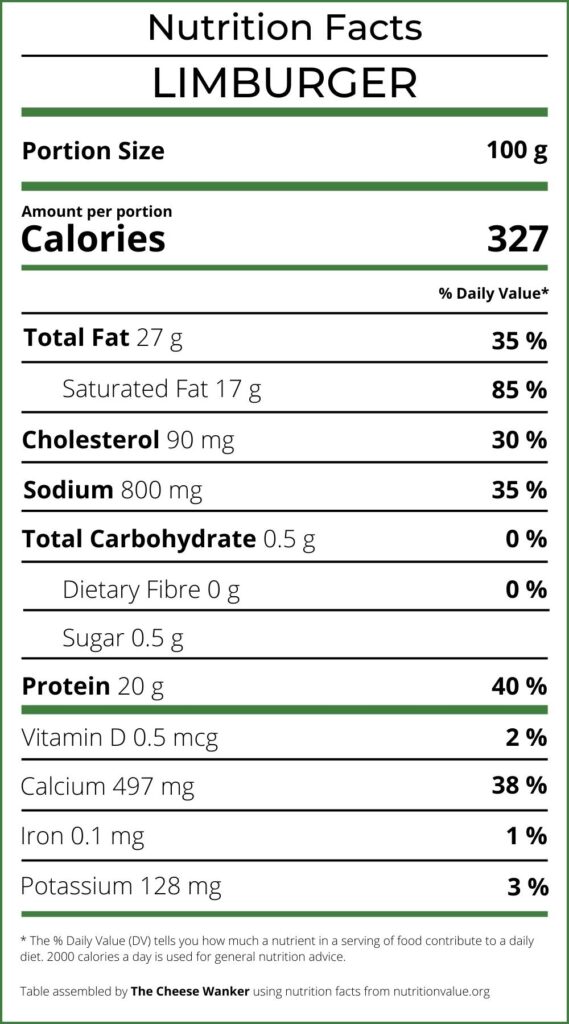
Country of origin
Belgium/Germany
Type of Cheese
Milk
Cow (Pasteurised)
Examples
Herve, Allgäuer Limburger, Chalet Cheese Cooperative’s Wisconsin Limburger, Oak Grove Dairy’s Ontario Limburger
Safe
Keto Diet, Lactose Intolerance
Avoid
Pregnancy (unless thoroughly cooked), Milk Protein Intolerance
Nutritional review for Limburger
Eating healthy plays a pivotal role in maintaining overall well-being and preventing chronic diseases. A balanced and nutritious diet provides our bodies with essential vitamins, minerals, and macronutrients, fuelling optimal physical and cognitive function.
With this in mind, let’s have a look at some of the key nutrition facts for Limburger.
Lactose intolerance
Lactose intolerance, a common digestive issue, varies among individuals. The lactose content in Limburger cheese is significantly lower compared to fresh dairy products, making it more tolerable for many.
However, those with severe lactose intolerance may still experience discomfort. The best advice for such individuals is to consume lactase enzyme supplements before enjoying Limburger cheese, aiding in the digestion of residual lactose.
Fat content
Limburger cheese contains different types of fat, primarily saturated and unsaturated fats. Saturated fats predominate, contributing to the cheese’s creamy texture and mouthfeel.
Understanding the balance of these fats is vital for dietary choices and maintaining a healthy lipid profile. Since Limburger contains on average 27 g of fat per 100 g serving, consuming it in moderation is advisable for someone who is watching their fat intake.
You can learn more about the different types of fat in cheese and which cheeses have the lowest fat content here.
Cholesterol content
Dietary cholesterol often raises concerns, but current scientific knowledge suggests that the cholesterol in foods like Limburger cheese may not significantly impact blood cholesterol levels.
Instead, it is the saturated fat content that has a more substantial influence. Moderation in consumption is key for individuals concerned about cholesterol.
Protein content
Limburger cheese contains protein derived from cow’s milk. As a matter of fact, each 100 g portion of this cheese will contribute 20 g of protein. This equates to about 40% of the recommended daily intake.
Protein is essential for various bodily functions, including tissue repair and immune system support. Consuming protein-rich foods like Limburger cheese can contribute to meeting daily protein requirements.
Want to find out which cheeses have the highest protein content? Click here for our blog post covering cheeses with the highest protein content.
Safety in pregnancy (not recommended)
During pregnancy, the high moisture content and washed-rind nature of Limburger cheese make it potentially unsafe due to the risk of harbouring harmful bacteria.
Pregnant individuals are advised to avoid consuming this cheese to mitigate any potential health risks.
Of course, if you’re unsure of what you can eat during pregnancy, you should consult your healthcare professional to get a personalised plan. You can read more about which cheeses you can eat when you’re pregnant by clicking here.
Salt content
Limburger cheese is notably salty, which contributes to its robust flavour. Indeed, 100 g of this washed rind cheese contains 800 mg of sodium (35% of the DV).
However, excessive salt consumption is associated with various health issues, including hypertension. It is particularly crucial for individuals with high blood pressure to limit their intake of salty foods, including Limburger cheese.
You can read more about why salt is important in cheesemaking in our comprehensive post here.
Calcium content
Calcium is essential for strong bones and teeth, and Limburger cheese is a source of this vital mineral.
This calcium source may be particularly beneficial for individuals who are on a meat-free diet, helping them maintain adequate calcium intake.
Conclusion
In conclusion, Limburger cheese offers a unique culinary experience, but its nutritional profile warrants careful consideration.
Understanding the nuances of lactose intolerance, safety during pregnancy and its nutritional profile provides valuable insights into incorporating this cheese into a balanced diet.
Ultimately, moderation and awareness of one’s dietary needs are key to enjoying Limburger cheese while maintaining good health.
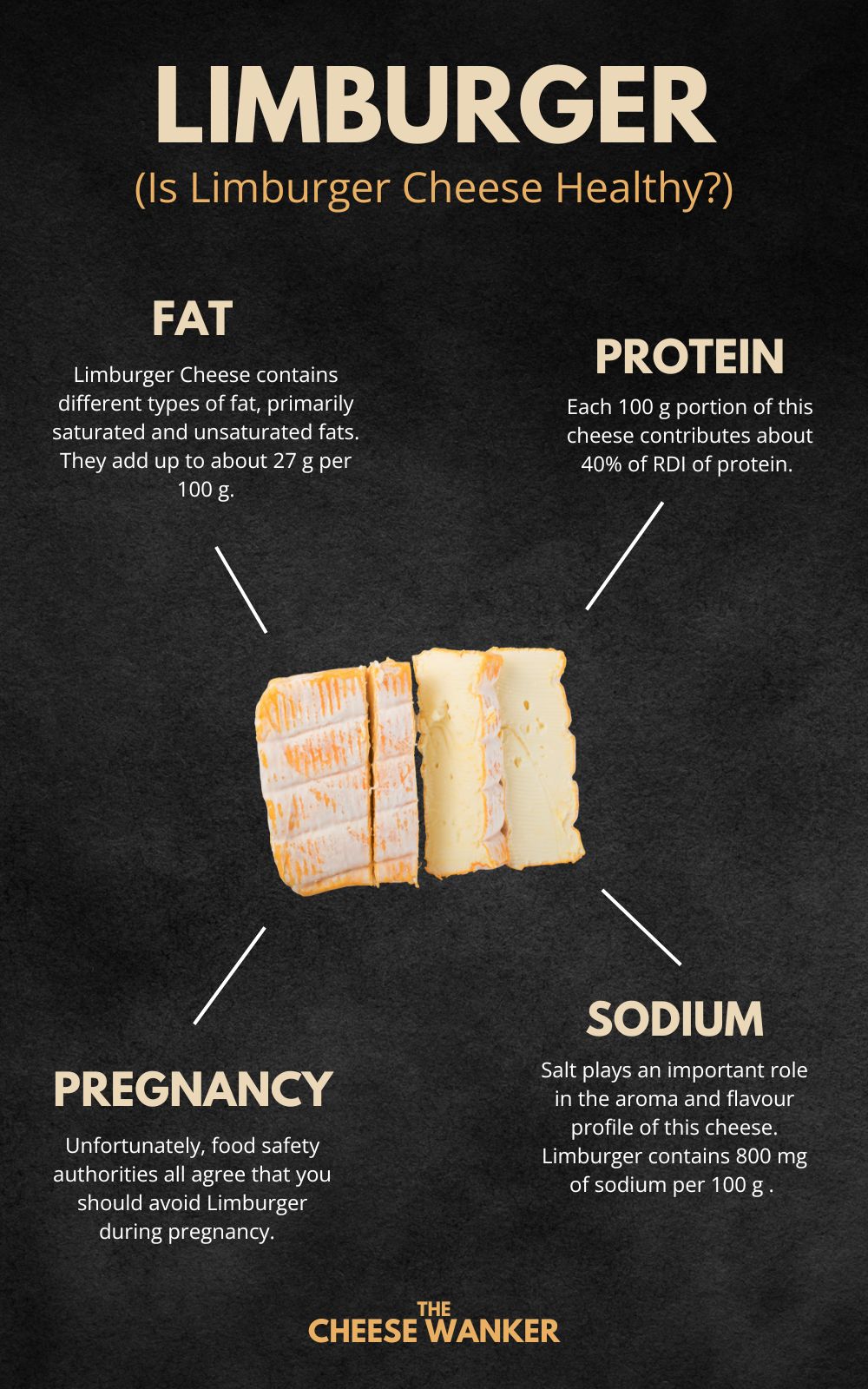
References
All the advice relating to what cheeses you can eat during pregnancy in this article is based on the recommendations by health authorities in Australia, the UK and the USA. If you are unsure about what you can or cannot eat, please consult your doctor.
Australia – FSANZ
United Kingdom – NHS
United Sates of America – FDA
